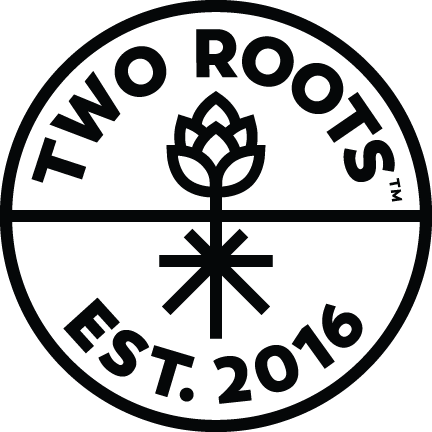Summary – 1 Minute Read.
Hindu Kush THCa, derived from the ancient cannabis cultivated in the Hindu Kush mountain range, exemplifies the profound interplay between geography and cannabis characteristics. This non-psychoactive compound, which becomes psychoactive upon heating, bridges ancient medicinal wisdom with modern scientific inquiry, prompting philosophical questions about natural medicine’s efficacy beyond psychoactivity. The exploration of THCa also highlights the co-evolution of human societies and plants, revealing deeper insights into ethnobotany and our ecological interdependencies. Thus, studying Hindu Kush THCa invites a broader contemplation of nature’s design and humanity’s role within it.
Cannabis Strain Hindu Kush THCa
When delving into the complexities of cannabis strains, one cannot overlook the enigmatic Hindu Kush THCa. This particular strain, with its rich history and profound effects, invites us to ponder deeper philosophical questions about nature, medicine, and the human experience.
The Hindu Kush mountain range, spanning across Afghanistan and Pakistan, is more than just a geographical marvel. It is a cradle of ancient cannabis cultivation. The harsh climate and rugged terrain have shaped the resilience and potency of this strain. When we examine the THCa Locally produced in these regions, it becomes evident that geography plays a pivotal role in determining the characteristics of cannabis.
Callout: Ancient Wisdom Meets Modern Science
Cannabis has been used for millennia for medicinal purposes. The discovery of THCa (tetrahydrocannabinolic acid) within Hindu Kush brings forth an interesting dialogue between ancient wisdom and modern science. Unlike THC (tetrahydrocannabinol), which is psychoactive, THCa is non-psychoactive until it undergoes decarboxylation through heat. This transformation raises intriguing questions about potential benefits that are yet to be fully understood or harnessed.
Philosophically speaking, one might wonder: what does it mean for a compound to hold such latent potential? The very existence of THCa challenges our understanding of efficacy in natural medicine. Is potency inherently tied to psychoactivity? Or can therapeutic benefits exist independently?
Further contemplation leads us to consider how humans interact with plants on both biological and spiritual levels. Cannabis strains like Hindu Kush have co-evolved with human societies, influencing cultural practices and medical traditions. By examining THCa Locally, we gain insights not only into pharmacology but also into ethnobotany—the study of how different cultures use plants.
Moreover, the presence of THCa prompts reflection on the broader relationship between humans and their environment. How does local flora shape local health practices? And conversely, how do human interventions impact plant biodiversity?
In essence, exploring Hindu Kush THCa is not merely an exercise in scientific inquiry; it’s an invitation to engage with timeless questions about nature’s design and our place within it. Through understanding this unique strain, we glimpse a microcosm of larger ecological interdependencies—a reminder that every element in nature holds significance beyond its immediate utility.
Thus, as we continue to research and utilize cannabis strains like Hindu Kush THCa, let us remain mindful of the intricate tapestry they weave between past traditions and future possibilities—an ever-evolving dialogue between humanity and the natural world.
Frequently Asked Questions (FAQs):
-
What is Hindu Kush THCa?
Hindu Kush THCa is a non-psychoactive cannabis strain. -
Where does the Hindu Kush strain originate?
It originates from the Hindu Kush mountain range in Afghanistan and Pakistan. -
How does geography affect Hindu Kush THCa?
The harsh climate shapes its resilience and potency. -
What is the difference between THCa and THC?
THCa is non-psychoactive; THC becomes psychoactive through heat. -
Why is studying THCa important?
It bridges ancient wisdom with modern science in medicine. -
Can THCa have therapeutic benefits without psychoactivity?
Yes, it may offer benefits independently of psychoactivity. -
What does ethnobotany study in relation to cannabis?
It examines how different cultures use plants like cannabis. -
How do local flora influence health practices?
Local plants shape traditional medical practices and cultural usage. -
Why reflect on human interaction with plants like cannabis?
To understand biological and spiritual connections with nature. -
What broader questions does exploring Hindu Kush THCa raise?
It raises questions about nature’s design and ecological interdependencies.
Helpful Links:
- Leafly: A comprehensive resource for information on cannabis strains, including user reviews and detailed descriptions of effects and origins.
- Medical News Today: Offers articles on the latest scientific research related to cannabis, including studies on THCa and its potential medicinal benefits.
- Project CBD: A non-profit dedicated to promoting research into the medical uses of cannabidiol (CBD) and other components of the cannabis plant like THCa.
- National Center for Complementary and Integrative Health (NCCIH): Provides reliable information about alternative medicine practices, including the use of cannabis in traditional medicine.
- PubMed: A database of biomedical literature where you can find peer-reviewed studies on THCa, THC, and other cannabinoids.
- Erowid Cannabis Vault: An extensive archive containing user experiences, historical data, and scientific information about various cannabis strains including Hindu Kush.
- Cannabis Culture: Covers news, culture, and science related to cannabis with a focus on its social and philosophical implications.
- Ethnobotany Research & Applications: An open-access journal that publishes research on how different cultures use plants, providing context for understanding the ethnobotanical significance of strains like Hindu Kush.
Definition:
- Cannabis Strain: A specific variety of the cannabis plant, bred for particular characteristics such as flavor, aroma, and effects.
- Hindu Kush: A pure indica strain of cannabis known for its potent sedative effects and earthy, sweet aroma; named after the mountain range that spans the Pakistan-Afghanistan border.
- THCa (Tetrahydrocannabinolic Acid): A non-psychoactive cannabinoid found in raw and live cannabis plants that converts to THC (the psychoactive component) when exposed to heat through a process called decarboxylation.





